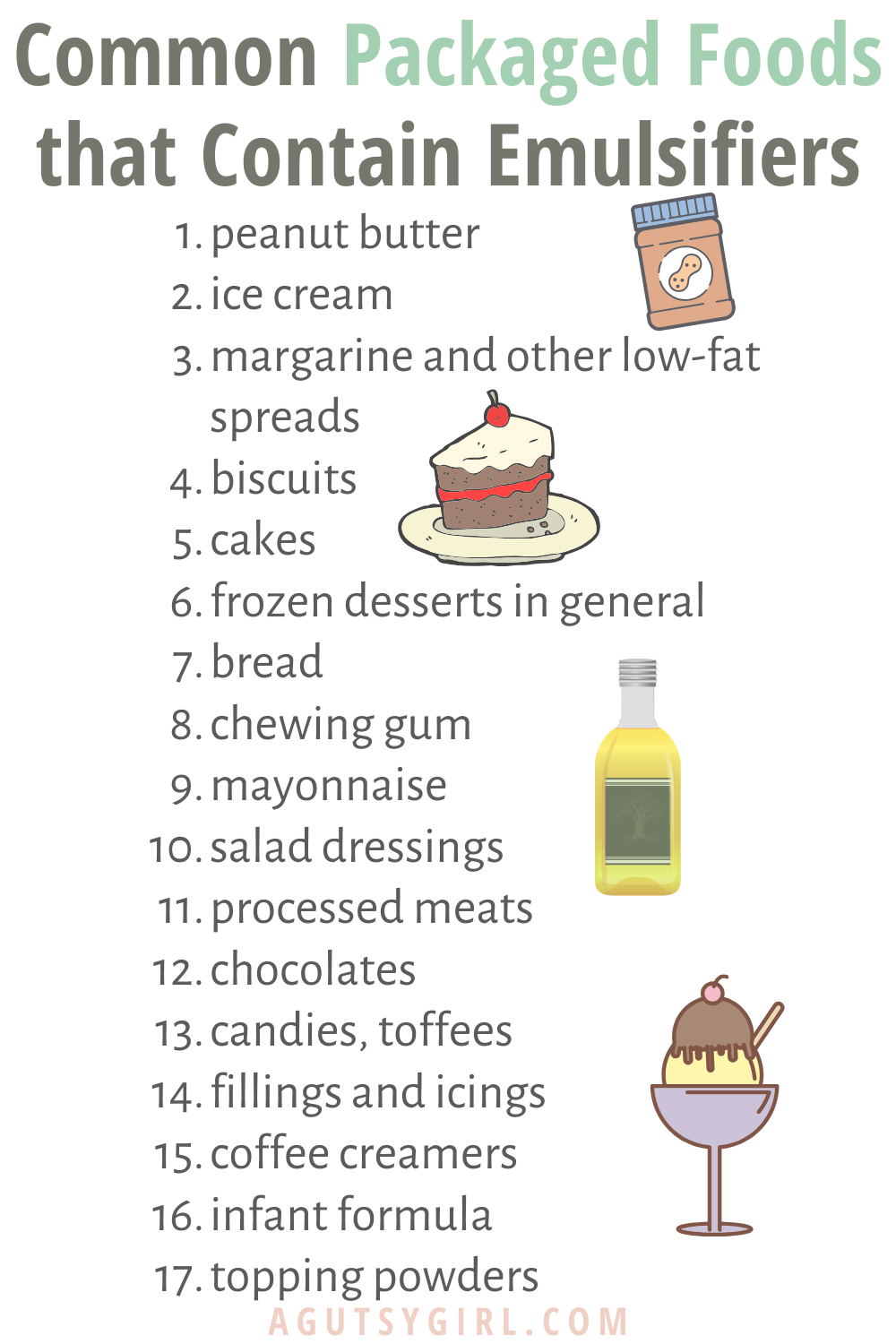Emulsifier In Food Misconceptions Cleared Up Explained
Everything about the Role of an Emulsifier in Food and Its Relevance in Modern Food
Emulsifiers are crucial in modern cuisine, facilitating the mix of immiscible liquids like oil and water. Their capability to stabilize combinations enhances the structure and taste of different food products. From salad dressings to baked goods, emulsifiers play a significant role in both industrial and home cooking. The science behind their feature and the future advancements in their usage remain less explored. What more could be uncovered regarding these necessary cooking representatives?
Recognizing Emulsification: The Science Behind the Refine
Emulsification may seem like a straightforward culinary method, it includes complicated scientific principles that are crucial for creating steady blends of immiscible liquids, such as oil and water. At the heart of this procedure lies the idea of surface tension, which stops the 2 liquids from mixing normally. Emulsifiers, materials that reduce surface area stress, play an important role in promoting the combination of these fluids. They possess both hydrophilic (water-attracting) and hydrophobic (water-repelling) buildings, allowing them to anchor themselves at the interface between oil and water.
When an emulsifier is introduced and the blend is perturbed, it develops a safety obstacle around spread beads of one liquid within the other, maintaining the mix. This activity not only boosts appearance and mouthfeel in foodstuff but also contributes to their visual appeal. Emulsifier In Food. Recognizing the scientific research behind emulsification is fundamental in contemporary cuisine, enabling chefs to produce a selection of sauces, dressings, and emulsified dishes
Usual Kinds Of Emulsifiers Made Use Of in Food
Emulsifiers are vital active ingredients in the food market, playing an essential role in stabilizing mixes of oil and water. Different types of emulsifiers are commonly used, each with special buildings matched for various applications. Lecithin, originated from soybeans or egg yolks, is just one of the most popular all-natural emulsifiers, frequently located in delicious chocolates and dressings. Mono- and diglycerides, which are obtained from glycerol and fatty acids, are widely used in baked products and margarine to enhance texture and expand life span. Another typical emulsifier is polysorbate 80, favored for its capability to boost the consistency of gelato and sauces. In addition, xanthan gum and guar gum offer as thickening representatives that likewise add to emulsification in gluten-free products. These emulsifiers are indispensable to developing a steady, tasty item in modern-day food formulations, making sure a positive sensory experience for consumers.
The Function of Emulsifiers in Numerous Food Products
A variety of food rely upon emulsifiers to accomplish wanted structures and security. These substances facilitate the mixing of immiscible liquids, such as oil and water, which is important in several refined foods. In salad dressings, emulsifiers aid maintain a regular blend, avoiding splitting up and improving rack life. In baked goods, they add to an uniform crumb structure and wetness retention, enhancing general top quality.
Emulsifiers also play a considerable function in dairy products, such as gelato and yogurt, where they maintain fat blobs, making certain a smooth mouthfeel. Additionally, in sauces and dressings, they improve viscosity and improve spreadability. This performance is crucial in the manufacturing of chocolates, margarine, and mayo, where a natural item is needed. Generally, the usage of emulsifiers in numerous food items is important to contemporary food manufacturing, improving stability and consistency across a vast array of items.
Exactly How Emulsifiers Enhance Appearance and Taste

When integrated right into foodstuff, emulsifiers greatly boost both texture and taste, creating a more pleasurable consuming experience. These materials promote the blending of active ingredients that normally do not mix well, such as oil and water, leading to a smoother, creamier consistency. This not just improves mouthfeel yet likewise allows tastes to spread uniformly throughout the product, intensifying the general preference.

Emulsifiers in Home Cooking: Tips and Techniques
Exactly how can home chefs properly make use of emulsifiers to improve their meals? Emulsifiers play an essential role in attaining preferable Read More Here appearances and tastes in homemade dishes. For circumstances, utilizing egg yolks in mayo or hollandaise sauce pop over here permits for a secure emulsion, combining oil and water effectively. Home cooks can also experiment with mustard, which functions as an emulsifier in vinaigrettes, making sure a smooth consistency.
In cooking, including lecithin, discovered in egg yolks or soy, can improve dough security and wetness retention. Furthermore, making use of business emulsifiers like xanthan periodontal or guar gum can assist thicken sauces and dressings while preserving a creamy mouthfeel.
When developing ice lotions or whipped garnishes, emulsifiers can stop ice crystal formation, causing a smoother texture. By mastering these techniques, home chefs can significantly boost their cooking developments, providing regular and delightful dishes that display the power of emulsification.
The Future of Emulsifiers in Culinary Development
As the culinary globe remains to progress, the role of emulsifiers is poised to end up being diverse and increasingly ingenious. Advances in food science are bring about the advancement of brand-new emulsifying agents stemmed from natural resources, which deal with health-conscious consumers and improve the sensory qualities of dishes. Developments such as plant-based emulsifiers are gaining traction, permitting cooks to create vegan and allergen-free alternatives without jeopardizing texture or taste.
Additionally, using emulsifiers in molecular gastronomy is increasing, enabling cooks to experiment with unique textures and discussions that captivate restaurants. As sustainability ends up being a top priority, the future may see a shift towards green emulsifiers that reduce environmental effect.
Inevitably, emulsifiers will continue to play a crucial function in cooking development, connecting the void in between custom and modernity, and enabling chefs to push the limits of creative thinking in their kitchens.
Regularly Asked Inquiries

Are Emulsifiers Safe for People With Allergies?
Emulsifiers can be secure for people with allergic reactions, depending upon their particular sensitivities. Specific emulsifiers, acquired from allergenic resources like soy or eggs, might cause responses, demanding cautious component scrutiny and examination with healthcare specialists.
Just How Do Emulsifiers Influence Food Life Span?
Emulsifiers boost food shelf life by supporting combinations, stopping splitting up, and lowering microbial growth. This security helps preserve texture and taste over time, enabling items to continue to be safe and enticing for usage longer than without emulsifiers.
Can Emulsifiers Be Derived From All-natural Resources?
Yes, emulsifiers can be originated from all-natural resources such as plants, eggs, and milk items (Emulsifier In Food). These all-natural emulsifiers help maintain mixtures, improving my link appearance and consistency in various food applications while being liked for health-conscious customers
What Are the Ecological Impacts of Emulsifier Manufacturing?
The environmental influences of emulsifier manufacturing consist of resource deficiency, environment destruction, and contamination from synthetic procedures. Natural emulsifier sourcing can reduce some impacts, yet on the whole, commercial techniques still posture significant ecological difficulties to communities worldwide.

Are There Vegan Emulsifiers Available on the market?
Yes, there are a number of vegan emulsifiers available in the market, such as lecithin originated from soy or sunflower, guar gum tissue, and xanthan periodontal. These options cater to plant-based diets without endangering emulsifying properties.
Emulsifiers are important ingredients in the food sector, playing a vital role in stabilizing mixtures of oil and water. A selection of food products count on emulsifiers to accomplish preferred textures and security. When integrated right into food products, emulsifiers significantly enhance both appearance and flavor, developing a more pleasurable eating experience. In addition, emulsifiers can maintain air pockets in whipped items like mousses and creams, leading to a light and airy texture. Emulsifiers boost food rack life by stabilizing mixtures, stopping separation, and minimizing microbial growth.